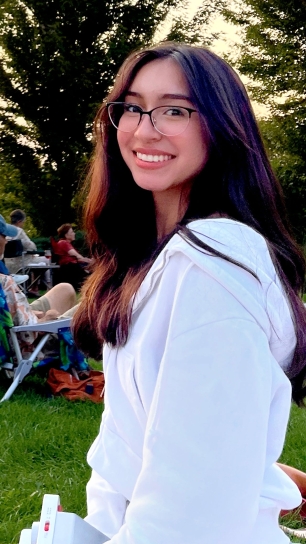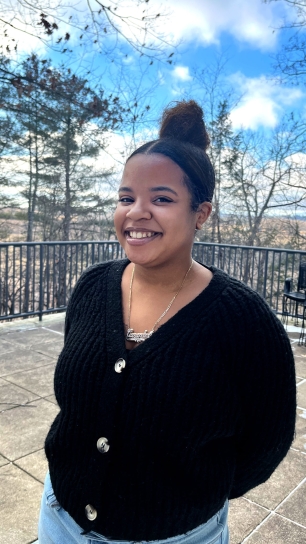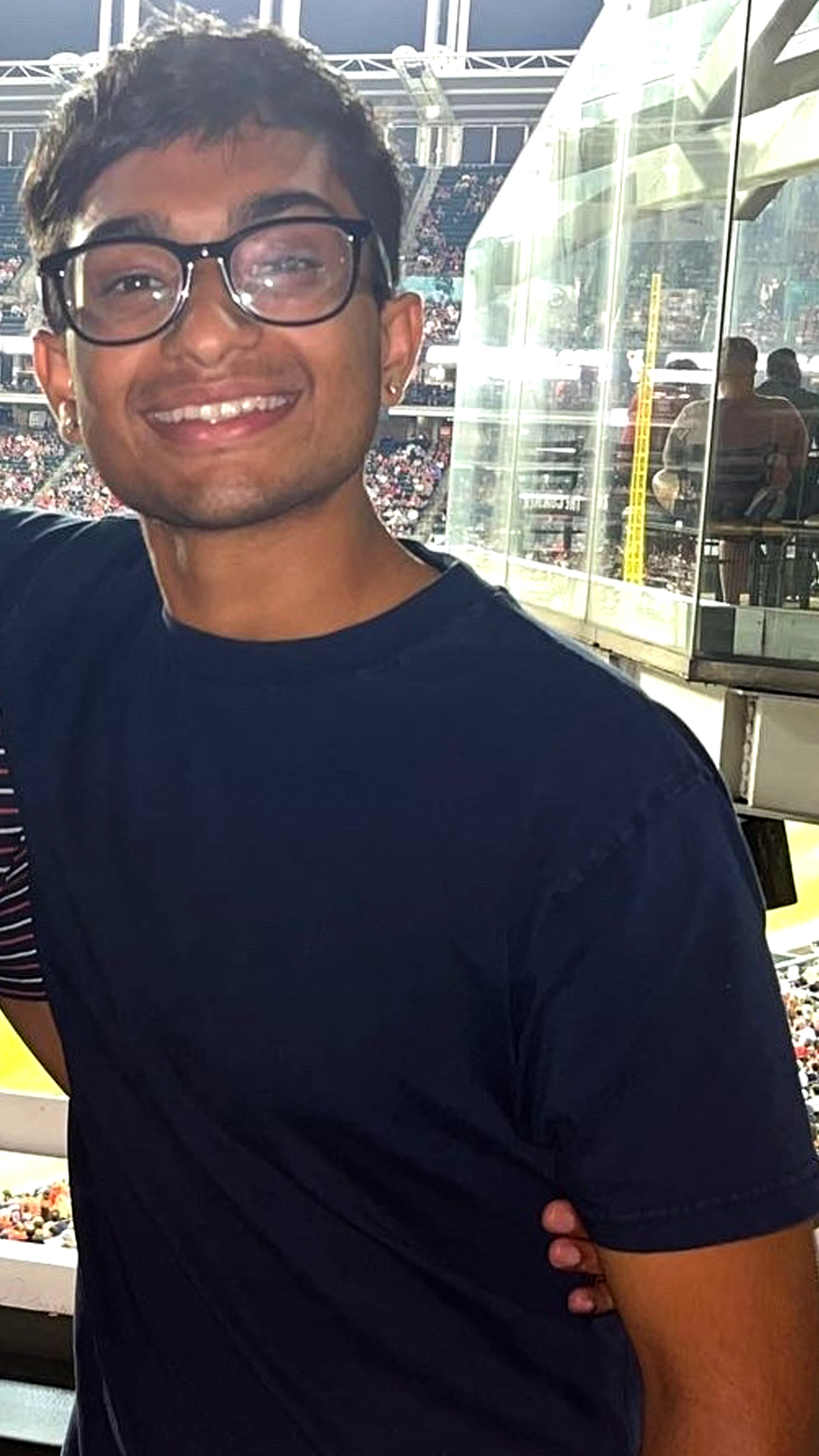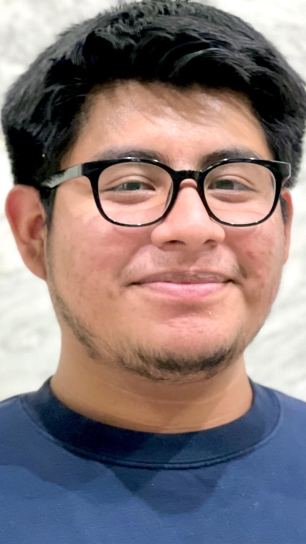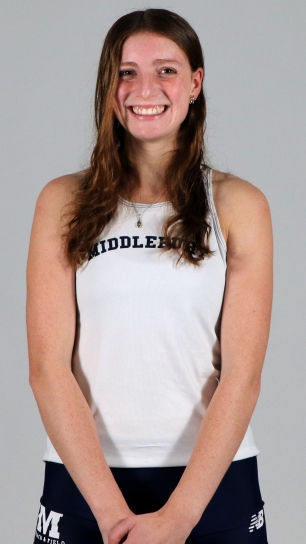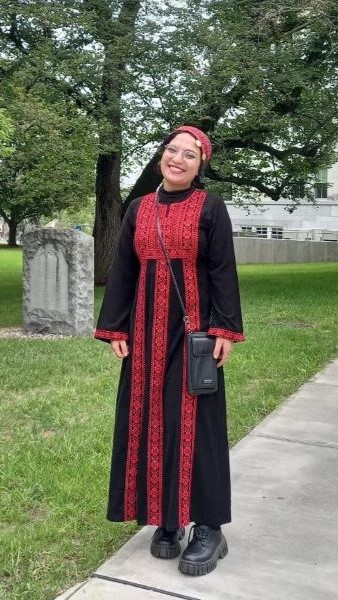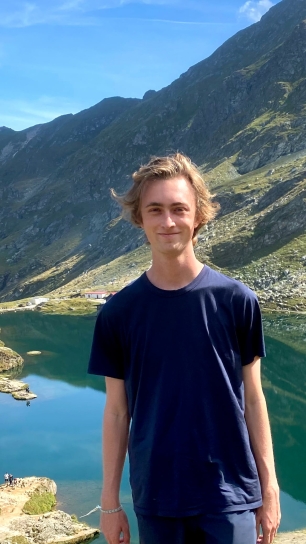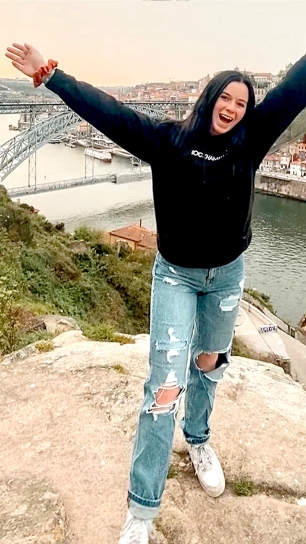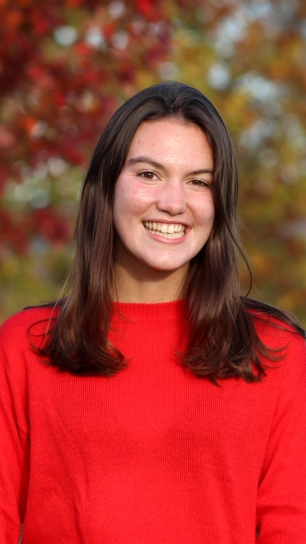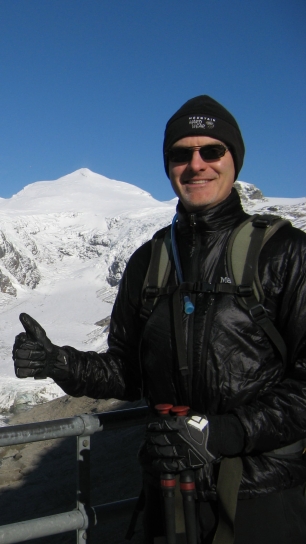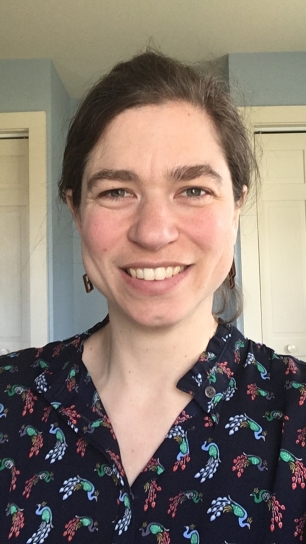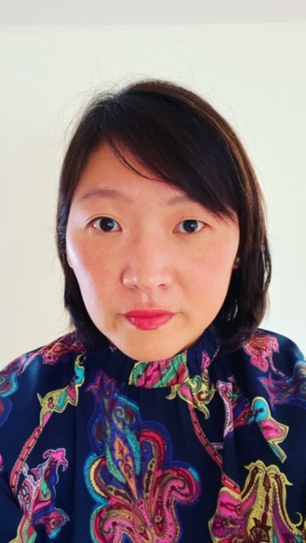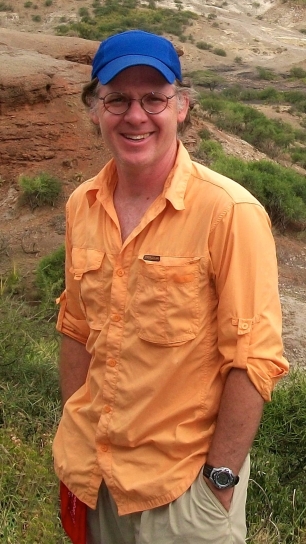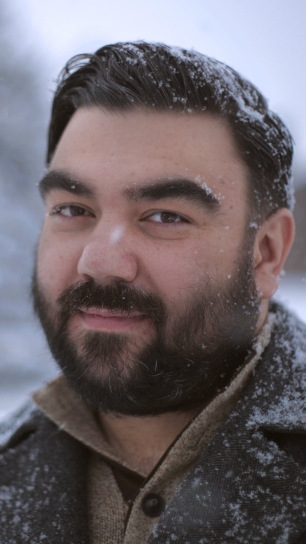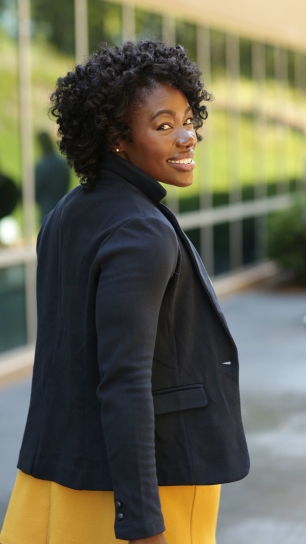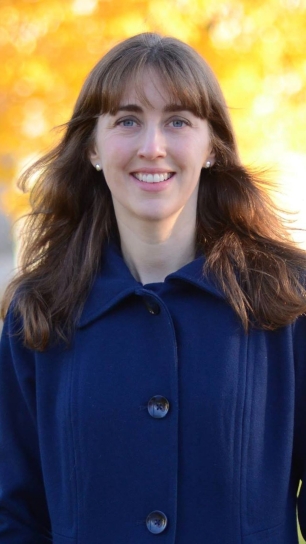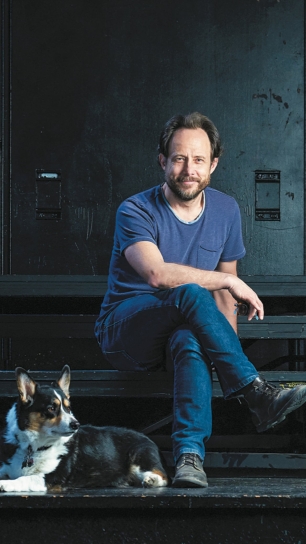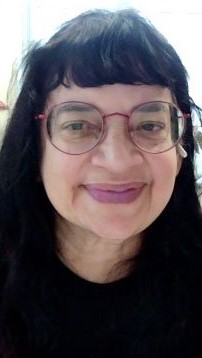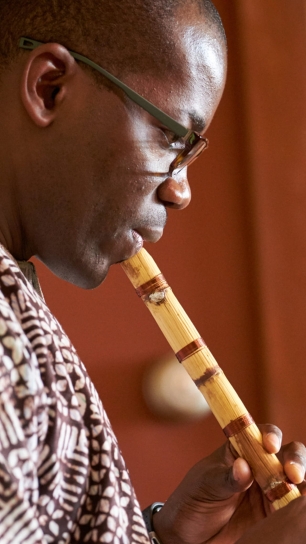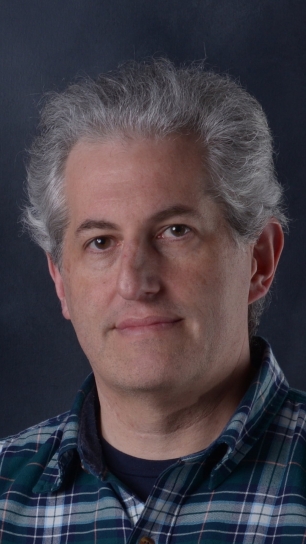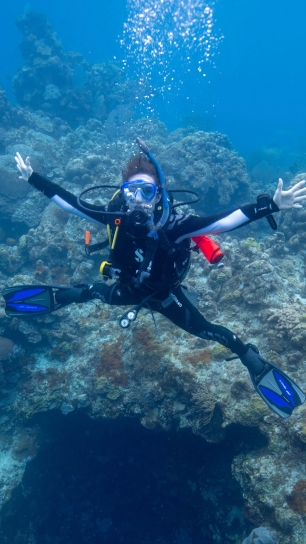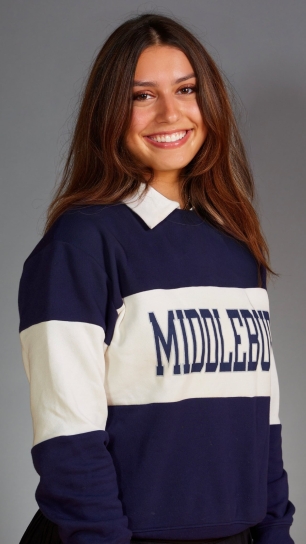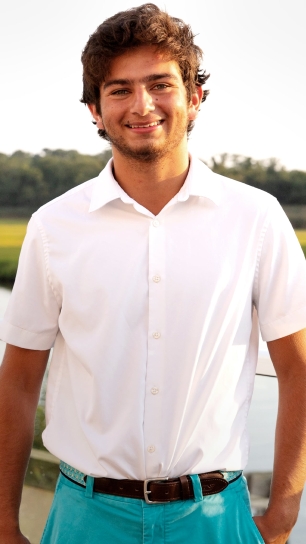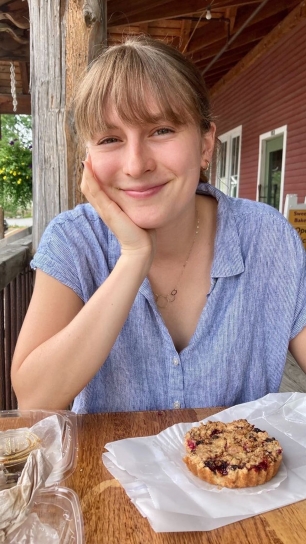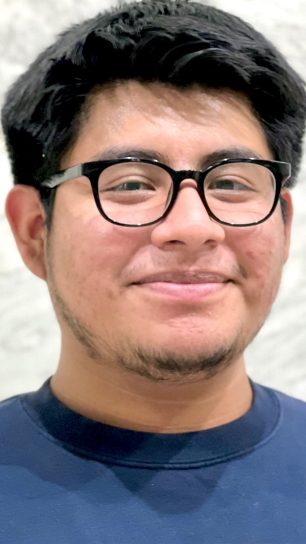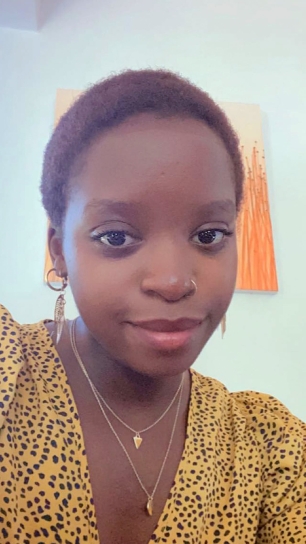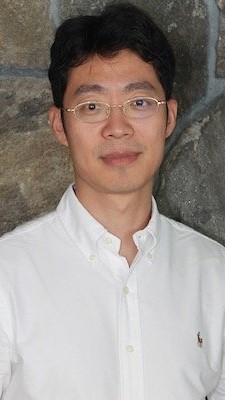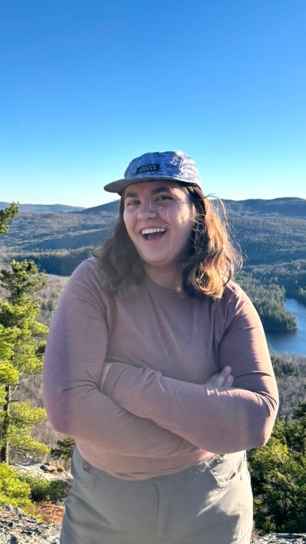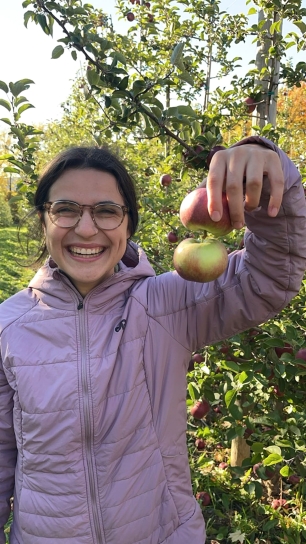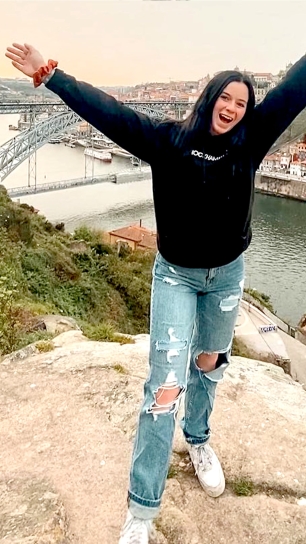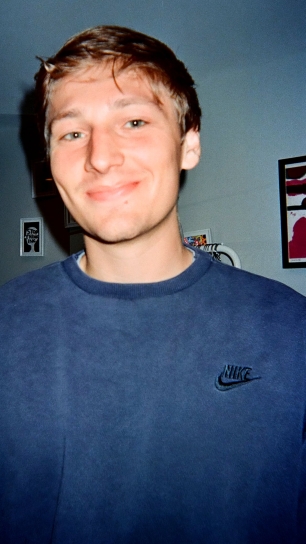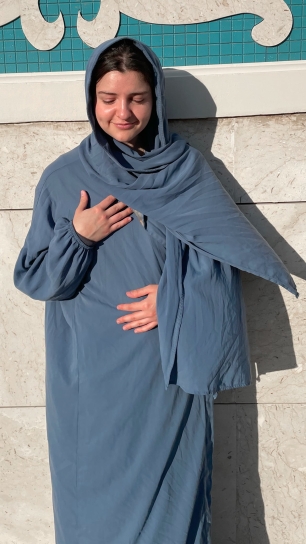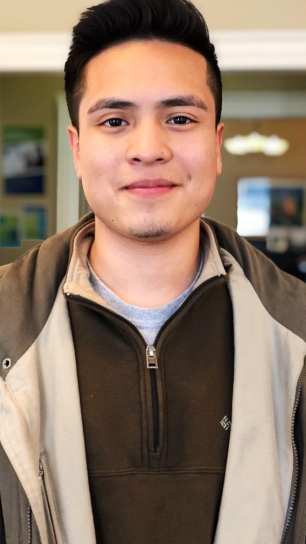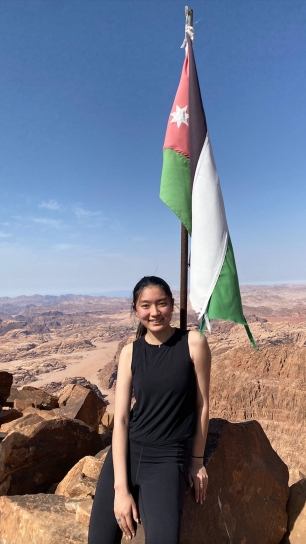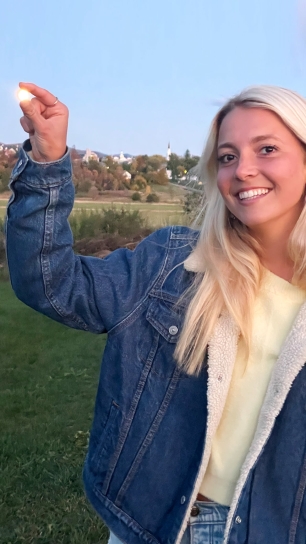Middlebury Insights
What do you want to know about Middlebury?
We asked students and faculty to share their answers to some of the most common questions we hear from students like you. Here’s what they had to say.
Life on Campus
I definitely chose Middlebury for three main reasons. The location, community, and academics. Location, because coming from Queens, New York, you get to appreciate the fall, winter, and spring year. And seeing them shift from one to the other is just gorgeous. And the view of the Green and Adirondack Mountains too is incredible as you walk to class. Makes you feel like you’re in a movie. And community because you get to form these deep personal connections with your professors, your peers, and even the townspeople, once you become the regulars to their shops during the year. And academics, because as a STEM major, like me, you get to have way more opportunities for undergraduate research with professors because Middlebury only has an undergraduate population, so there’s no competition with graduate students. So that’s definitely a plus.
Living in a dorm is just so much fun. There’s just endless possibilities, and you really have so many opportunities to really create connections and foster community in your dorm. And there’s just so many people who wanna help when needed and are always down to hang out with you. And you honestly get to get really creative with your living space. And you just make memories in your dorm that will stay with you for years to come. And there are just so many support systems in place, such as your RAs, which are student staff members, and they’re always ready to offer resources and supports for you. Like I’m an RA, for example, and I love talking to my residents, seeing how they’re doing, and just knowing what’s going on with their lives. And there’s also just so many opportunities just for different places to live in dorms here on campus. There are the townhouses, there are special interest houses, and academic interest houses, such as the gender studies, Spanish, Portuguese, and there’s also social houses here, which are really cool to live at.
I would say my favorite thing about the Middlebury dining halls is the variety that they offer. There’s always a meat, vegan, and vegetarian option, as well as multiple cuisines and meal options. My favorite meal, personally, is Thanksgiving Day at Ross. I know it’s not a crowd favorite, but I personally love it and there’s always a open salad bar and snack area if you want. And if you want something late night, I love the fact that MiddXpress is open until midnight, so if you want a quick pick me up, you can go there and grab coffee or anything. We also have options like The Grille and Crossroads which can serve as, you know, your sort of sandwich place or smoothie shop and if you need in a pickle. So basically, I would say my favorite thing about Middlebury food is just the variety you can have at any moment, at any time.
As an institution, Middlebury supports inclusivity on campus. For example, first gen, low income first-year students have access to a preorientation program called First@Midd which specifically supports them in their transition into higher education. And beyond that, all year round, students have access to plenty of affinity spaces on campus, such as LASA, the Latin American Student Association, as well as BSU, the Black Student Union, and so many others. And beyond that, Middlebury has a financial commitment to supporting inclusivity. For example, right now, I am currently pursuing an unpaid internship in Costa Rica that I otherwise would not have been able to pursue had it not been for Middlebury’s commitment to inclusivity in so many different ways.
Okay, well, here at Middlebury, we have a very vibrant, active, community-oriented athletic culture here on campus, You can get involved in athletics in so many different ways on the intramural level in a club sport, like frisbee or quad ball or crew. We also have 31 varsity teams here on campus. I personally am a member of the varsity Track and Field Team, and I really love being an athlete here at Middlebury. We’re a D3 school, and what that means is that there’s a really strict academics over athletics policy, and so our coaches understand that school comes first. There was never a question of whether I would choose track over abroad. I got to go abroad and I didn’t think about working out the entire time. But I really enjoyed having my friends come to all of my track meets. People really go out to support their friends in athletics, and it’s really easy to get involved.
Name: Raghad Husni Sayyed, Arabic Teaching Assistant
مرحبًا! أنا رغد حسني وأنا معيدة اللغة العربية. نحن في البيت العربي، والبيت العربي هو بيتي. انا اشعر هنا بانتماء, شعور غريب حقيقة,عندما اتخيل أني في حياتي لن أعيش في مكان اسمه البيت العربي. فكرة أن هناك بيت اسمه “البيت العربي” وأنا أعيش هناك وأمثل ثقافتي فكرة جميلة خيالية. أشعر بالحب في البيت العربي، و بالحرية لأنني أتكلم لغتي التي استطيع ان اعبر خلالها بدون أي قيود. وأنا أشعر بالفرح عندما يأتي الطلاب هنا للأنشطة ويجتمعون, وأيضا تكون مساحة آمنة لهم ليتعلموا أكثر عن الثقافة واللغة التي يهتمون بها.وحقيقة أن هذا شغف الذي عندهم يجعلني فضولية أكثر لثقافتي و أقرب نوعا ما. وأتعلم منهم أكثر من …أنا يجب أن أعلمهم وأمثل ثقافتي ولكن في الحقيقة أتعلم منهم و من أسئلتهم. ومن كل هذه الشعلة التي أراها في وجوههم وفي أعينهم عندما يسألون عن شيء بثقافة أو مزحة أو كتاب أو كلمة.وخاصة الطلاب الذين أعيش معهم في البيت العربي: البيت العربي هو مكان سكني ومكان عملي أيضًا. أشعر أنهم عائلتي, نطبخ مع بعض, نضحك, أحيانا أيضًا نتقاتل يعني طوشة لكن كل هذا يجعلنا أقرب, ونعيش الخبرة أو التجربة العربية بحد ذاتها بدون أي قيود.
Welcome! My name is Raghad Husni and I am an Arabic teaching assistant. We’re here in the Arabic house, and the Arabic house is my house. I feel a sense of belonging here, a strange feeling indeed, when I imagine that in my life I have never lived in a place called the Arabic house. The idea that there is a house is called “The Arabic House” and I live there is a beautiful, imaginative idea. I feel loved in the Arabic house, and I feel free because I speak my language and I can express myself without any restrictions. I also feel happy when students come here for activities and to socialize, and it is a safe space for them to learn a lot about the culture and language that they care about. The fact that this is a passion that they have makes me even more curious about my culture, and somewhat closer [to my culture]. I also learn more from them…I should be teaching them and representing my culture, but in reality I learn from them and from their questions. I see longing in their faces and in their eyes when they ask about the culture or a joke or a book or a word. Especially for the students that live with each other in the Arabic House, the Arabic House is a residential space and a workplace as well. I feel that they are my family, we cook together, we laugh, sometimes we also fight, but it brings us closer, and we live in the Arabic experience itself without any restrictions.
So, here at Middlebury, weekends consist of many different things, but not really anyone is specifically the same. But still, I’m gonna attempt to try to give you what a typical weekend looks like. For a lot of people, weekends actually sort of start Thursday. A lot of people only have one class, or a discussion section on Friday, and so Thursday night, usually there’s live music at one of the social houses called The Mill. And also there’s a bunch of just sort of student-run activities. Specifically, there’s an international film club that I like to go to with my friends. And I like to go to bed early and sort of wake up and get a good start on Friday. Friday is one of the bigger days of the week. A lot of people will go on a hike Friday and then come back, have a big dinner with their friends, and then after that, hang out in someone’s room, listen to music. And then maybe they’ll attend a campus event, something that a club or the SGA is hosting. And then they’ll maybe check out one of the, you know, if a social house is having a party, or an interest house is having a party, and they’ll go and sort of see what that’s about. Saturday night is more the same, but it’s also the day for sort of doing big things. And so, if it’s the winter, people will go skiing, and if it’s the fall, they might check out the TAM, or one of the awesome trails we have around Middlebury, or they might go swimming in one of the rivers and waterfalls we have around here. Sunday for me tends to be a lot chiller and I think a lot of people take Sunday as a day for relaxing, you know, catching up on some work, spending some time in the library, and, you know, having just a day for yourself. And, yeah, that’s a typical weekend here at Middlebury.
One of the reasons I chose to come to Middlebury was because the beautiful landscape we’re surrounded by. We have the Green Mountains to our east and the Adirondacks to our west. Coming from Texas, it’s entirely different than anything I had ever experienced, but I’ve loved the opportunities to go swimming in local swimming holes in the summer, hiking in the fall and spring, snowboarding in the winter, or sledding down the hill in front of the chapel. On the weekends, a lot of times we go to local farmer’s markets either here in our own community or in one of the surrounding communities. I’ve also had the opportunity to volunteer in the local community and get to know people that call this place their home and it’s really safe. I feel comfortable walking home with my friends after a night out, coming back to campus or driving a few hours away down to Burlington with my friends. It’s been a wonderful place to be ingrained in for the last four years, and a lovely place to call home.
I think the art scene here is really great. It’s super easy to get involved in, and there are always things going on whether it’s a faculty show or a student-run show. We’ve got a student-run theater, the Hepburn Zoo. I’m in an a cappella group, the Middlebury Mischords, and sometimes we have shows. There’s just so many different ways to get involved or go see something. A really great example of this is we have Nocturne, which is an outdoor arts festival in the spring where students who have been working on dance performances, like, pieces of art, or people will sing or do scenes and they present all over campus, and you can walk around and just see what everyone’s been up to.
Meet Your Faculty
The Undergraduate Research Office at Middlebury is a great resource for students seeking funding to support semesterlong independent projects, yearlong senior thesis research, or any other projects that they’re conducting with their advisors. Students are eligible for support in the order of a few hundred to more than a thousand dollars that they can use to cover their research expenses. Separate funding’s also available to allow students to travel to professional conferences to present the results of their research. My own research students have used funding from the Undergraduate Research Office to travel with me and present the results of their projects at conferences throughout the United States as well as in Austria, Italy, and other locations around the world. A highlight of the spring semester each year at Middlebury each year is an event called the Spring Student Symposium. This is a showcase that allows students to present the results of their independent work in disciplines ranging from the humanities and the arts all the way through to the hard sciences. Classes are canceled for the day, which allows students, faculty, and staff the flexibility to attend these presentations. These take the form of talks and posters, dance recitals, concerts, and really every form of creative expression imaginable. This is a great event that everyone here at Middlebury looks forward to each spring semester.
I think Middlebury professors are extremely accessible to students. We come to a place like Middlebury because we want to have those interactions with students, whether it’s in the classroom or getting to know you better outside of academics, or providing mentorship for both your career at Middlebury and beyond. Those are the type of interactions that we love. And so we try to provide lots of opportunities for you to have those types of interactions with us. So obviously, in the classroom, that’s one way that we interact with you. But we also have office hours, which are just times every week where students can drop in and talk to us about anything that they want, whether it’s questions that they have about material from class or anything else that they wanna talk about. And most professors have way more office hours than the minimum required, because we just wanna give all of our students opportunities to come. You know, I schedule my office hours based on when students are available to make sure that they can all come and talk to me. And I give students extra credit for class if they come. ’Cause I just want an incentive for students as much as possible to come and have those interactions with me. Lots of professors also have interactions with students outside of class. So like, in the Computer Science Department, we have a barbecue every summer for students who are doing research with us on campus. And I’ve had lots of coffees and lunches with students to just talk about what’s going on in their lives and what they’re thinking about in terms of summer internships, or what classes to take next semester, or whatever they wanna talk about.
During winter term, or J-term, you’ll be taking one full-credit course over four weeks. And it’s the only class you’ll be taking over the month of January. And it’s a chance to take a deep dive into a topic over the month. I’ve been teaching a course on Asian American food studies that is also a writing course. We study how Asian American communities have been defined by food and how Asian Americans define themselves through food. We read and write different genres of food-related writing, including memoirs, restaurant reviews, recipes, and cookbook reviews. We also do a lot of eating and a little bit of cooking. At the end of the class, we get together at an on-campus faculty member’s house, and we have a feast with various foods prepared by the members of the class. It’s a great chance to learn about a complex topic in an interactive way and as a group. And I think that’s what the best J-term classes do, they create a sense of community and a sense of learning as a shared experience.
Does everyone do a senior thesis? No, not everybody. People that wanna get honors in a major or a program usually do a senior thesis, but it’s not for everybody. In anthropology, we have people either do a one-semester project or a two-semester project. It allows them to focus. It allows them to work closely with one professor. It often launches them into a particular grad school or career specialization. The projects I’ve been working on this year with students were first, a project about how Vermont farmers are preparing for climate change, second is also a climate change project about the ways that there are particular cultural narratives of climate futures getting expressed in current speculative fiction, and the third is an examination of how mythology is a mechanism for creating a sense of place in different cultural contexts. Overall, I think a senior thesis is a great project because it really gives a student a chance to stretch themselves out and figure out what’s really significant to them.
A first-year seminar is a course, every first-year takes it. It’s a course designed to get you involved in the liberal arts education and what the liberal arts actually looks like. A lot of these courses are unique and are something that professors are interested in but don’t often teach. For instance, I teach a course called the Language of Conspiracy Theories, which is a fun course where we study why do conspiracy theories exist, where do they exist in the 21st century, and why do they keep popping up. Those are the types of courses that you’ll be taking with your first-year seminar. They’re a great way for you to engage with peers in your new class. Your first-year seminar professor is also your advisor. So it’s a great way to get you involved with your first-year experience here at Middlebury and to get you set up for the rest of your academic career. Next I wanna talk to just quickly about choosing a major. This is my third year at the College, and I can say that I’ve been surprised how many students show up, they have a major in mind. They know what they want to do in life. And then after a semester, maybe a year, they’ve completely changed their mind. They’ll go from something that, oh, they were all about science, and now they wanna do something a little liberal arts. Or vice versa. So to find a major, we really suggest taking a broad array of classes. Really exploring the possibilities of what interests you. And you’ll be surprised by what you might want to major in. It’s okay if you have a major already in mind when you get here, and maybe that stays your major. Maybe the major changes. Or maybe you don’t have a major in mind, and that’s great as well. The great thing is you’ll focus on taking different sorts of courses and working with your professor to find the best major for you.
It is my pleasure to welcome you to this institution and to give you a little clue about what your academic advising might look like. The way that liberal arts means making sense of the human experience, please also remember that your advisor, your first-year seminar advisor, then subsequently your academic advisor, are here to help you make sense of your college experience, your entry into being a scholar, and ultimately a purposeful person in the world. So, in your third semester, you will declare your major. But prior to that, your first-year seminar instructor will serve as your academic advisor. He or she will tell you how to expand your vision of not only the academic experience, but yourself. They may nudge you to take courses in something that might make you feel a little uncomfortable, or they may point you in the direction of something that may expand your horizons. And then in your third semester, once you declare your major, you’ll have an academic advisor who’ll help you hone in on the question that will ultimately propel you to a new understanding and a purposeful life in the world.
Midd students do research with faculty all the time. And I will draw on some of my own research projects to give you a sense of what that looks like. I’m an applied microeconomist. You can think data and statistics. My work seeks to identify and measure the causal effects of reproductive policies on people’s lives. And over the years, I’ve hired many RAs to work on research projects with me. My RAs have ranged from freshman to seniors. Some of them have been undeclared in major. Others have been majoring in computer science, math, geography, environmental studies, history, and not surprisingly, my own field, economics. My RAs work in visualizations, have appeared in scholarly journals. They’ve appeared in national media outlets like the New York Times. They’ve even appeared in federal courtrooms. This year, I’ve had three RAs working with me on a project that is in partnership with a national nonprofit organization. We’re all working together to rapidly update a database of reproductive healthcare providers so that we can see how changes in Title X funding that took effect this summer are affecting reproductive healthcare access. This summer, I have an RA lined up to work with me here in Middlebury on campus, fingers crossed. But definitely gonna work with me on a project to update another database of abortion facilities so that we can visualize the changing landscape of abortion access. Now, not surprisingly, my RAs have been incredibly helpful to me in my own research. It’s also, I hope and think, a valuable experience for them. They’re getting a chance to deeply learn and demonstrate their expertise with a methodological toolkit that’s really valuable in grad school and in demand among a lot of employers. But really perhaps even more importantly, there’s something magical about getting to deeply engage a research project and see what it takes to push the boundaries of knowledge forward. It can be really difficult and painstaking and messy and frustrating and exciting. And ultimately, in being part of that process, students transition from just being recipients of wisdom to actually creating new knowledge and being more rigorous and critical thinkers who ask questions about why it is that we know what we think we know. I think it makes them more skeptical without crossing that dangerous border into cynicism. So wherever your own passions lie, I would strongly encourage you, if you’re a Midd Kid, to look for opportunities to engage in research with faculty. Those opportunities are not difficult to find.
Hi, my name’s Alex Draper. I am the chair of the Theatre Department here at Middlebury. And I’ve been asked to make a short film about where on campus experiential learning takes place. And one of the places is right here in Seeler Studio Theatre where we rehearse, and produce, and present plays. And all of the productions we do in the Theatre Department count as classes. So the students are taking them as an official course. And their time put into rehearsal is recognized as such. And in addition to that, all of the classes that we teach have a practical experiential component. So that everything you’re studying, you’re actually putting into practice in some way. If you’re a costume designer, you are designing, drawing, producing costumes. Same thing, set design, playwriting, acting, directing. All that is applied to work that is actually up on its feet and presented in class or to an audience. In addition to that, the department’s very lucky that we have in the outside-of-the-classroom part of experiential learning, we have a professional theater company, PTP/NYC, that’s been in existence for 34 years now, where we take a company of actors made up of half Middlebury College students and half equity actors. We rehearse up here in New York for three weeks, and we take two shows to New York City and run them in rep for five weeks during the summer. And through that process, students get to take all of the things they’re learning in our classrooms here and apply them to very real-world situations as a small theater company producing work in front of live audiences and reviewers in New York City. So I’m sure there are many more examples across campus of great ways in which experiential learning takes place here, but that’s just a few of the examples from here in the Theatre Department.
Patricia Saldarriaga, Professor of Luso-Hispanic Studies
Para estudiar español lo mejor es poder hablar en la lengua en un momento específico. Por ejemplo, el aula de clases es ideal, porque el estudiante puede pensar, puede argumentar y puede aprender a expresarse con más naturalidad en la lengua. Yo creo que las clases deben por lo menos, el aula de clases en español debe concentrarse en esa posibilidad, de que el estudiante pueda solamente hablar español la mayoría del tiempo. Y eso es lo que hacemos en nuestras clases en realidad. Estudiar en el estranjero es super importante porque el estudiante puede ahí realmente aprender a desarrollarse cien por ciento en la lengua. Otra posibilidad en Middlebury son las escuelas de verano. Ahí el “language pledge” es realmente obligatorio todo el tiempo. Yo estoy enseñado en la escuela de verano por muchos años, y realmente es una de las mejores experiencias para estudiar la lengua en un ambiente de inmersión.
To study Spanish, it is best to be able to speak the language at a specific time. For example, the classroom environment is ideal, because the student can think, can argue, and can learn to express themselves more naturally in that language. I think that classes at least… The Spanish classroom environment should focus on that possibility, that the student can speak in Spanish the majority of the time. And really that is what we do in our classes. To study abroad is super important because the student can really learn to develop in the language one hundred percent. Another possibility here at Middlebury are the summer language schools. There, the “language pledge” is mandatory all the time. I’ve taught at the summer language school for many years, and really it’s one of the best experiences to study a language in an immersive environment.
Our liberal arts curriculum will prepare you to become successful wherever your paths may lead you after graduation. You may continue your education in master’s and PhD programs or in professions such as law and medicine. You may also pursue careers in established and emerging fields, applying your knowledge of and skills in the arts, humanities, sciences, and languages. Last, but not least, when you graduate from the College, you become a part of a larger, supportive network of alumni.
My favorite thing about teaching at Middlebury is working one-on-one with students on projects. And in my department, we do everything from short videos that students write and direct to documentaries, to video essays, to screenplays, television pilots, critical essays, podcasts. And working with students on these projects is always really exciting because they come in with ideas that they’re passionate about, and I’m able to talk with them about what most interests them and help them develop an approach that is original and fits with their ideas. And usually, that project will develop and really will change over time in ways that neither of us could expect. And it’s always so gratifying to see what comes out and how much students learn along the way, and then a final product that is usually ready to share to the community.
These range across the academic disciplines and include spaces that support film and media production, dance and theater and music spaces, the special collections in our libraries, the art museum, as well as the Johnson Art and Architecture studios and the Makerspace. As a biologist I’m most familiar with our science facilities, which are mostly housed in McCardell Bicentennial Hall. These include the observatory and our greenhouse as well as several other teaching and research laboratories. So in my laboratory we have access to microscopy facilities as well as a wide range of molecular biological equipment and spaces. And then also, hip waders and other field equipment that we use to sample lakes around Vermont. All of these facilities really support our student efforts in diverse academic pursuits and will be available to you once you arrive on campus.
The Academic Experience
I’ve definitely gotten to know my professors here at Middlebury. Looking back to first year and second year here, I really wish that I’d taken advantage more of office hours. I think that professors can be really great support systems if you let them be and really take advantage of going in and speaking to them, and just knowing that they’re there for you. My environmental chemistry teacher, who also is my advisor, because I’m an environmental chemistry major, always hosts pizza parties at the end of all of her courses for all the students, and that’s at her house, and we all get together and do different things. So I’ve definitely gotten to feel really comfortable around my teachers. Senior year, I also took an anthropology class, I’d never taken one before, and I really got to know my professor, Trinh Tran, she’s incredible. Well, and we ended up getting matcha outside of class and having dinner and really getting to know her and her story and what led to her being at Middlebury, and it definitely made me feel more supported inside the classroom and also felt that I was able to reach out to her when I needed help.
The Innovation Hub is where ideas come to life, whether this be through Oratory Now, MiddCORE, or any other funding event. What this looks like is, and at least Oratory Now, is where students can take a credit class or completely extracurricular activity where they are tutored by their peers or a professional in how to really engage in perfect public speaking abilities. It’s a really great program to help students develop their confidence and talking in front of crowds, and it’s a great way for students to engage with the community. MiddCORE is a class where students get to really develop their career goals. Panelists come and talk or in person and virtually every morning and tell them about their career path, what they’ve learned, and really how to maximize their time at Middlebury. It’s basically starts off with a TED Talk every day, and in the second half of it, students get to work on a strategic challenge where they help a company solve an issue. This year it’s Lego. All in all, the Innovation Hub is a great place to really learn a lot.
Here at Middlebury, we have a 4-1-4 calendar system, meaning that students take four classes in the fall semester, four classes in the spring semester, and then one class during the month of January, and that is known as our J-term. J-term is a really wonderful time to try something new because you’re taking one class for four weeks. My first year here I took a class in the Religion Department called Buddhism in the Modern World, which was really far outside of my comfort zone, but I think it was the perfect time to do that. You could also take a class from a visiting professor, take a more unique class, like an EMT course and get your certification, but you could even use this time to do an internship, study abroad, or do research for credit. Beyond the classroom, J-term is a really fun time because we celebrate winter in Vermont with activities like a Winter Carnival, which consists of a concert and ski races, and a bunch of different workshops and student-led activities. I also used this time to take my first ever ski lesson at a Rikert Nordic Center, and it was just really fun to celebrate winter in Vermont.
So my favorite class at Middlebury is Inequality and the American Dream with Professor Matt Lawrence, and I actually took this course before I even came to Middlebury. I sat in on it during Middlebury’s Discover Midd Program. And I fell in love with the course, I fell in love with the professor’s interaction with the students and the material that they were covering. And for me, as a first generation student, covering the idea of the American dream and socioeconomic mobility just felt really relevant to why I was here at Middlebury, and so I knew that I had to take that course and really come to Middlebury to really learn about that with a professor who’s really well-known for his studies on socioeconomic mobility and education.
I came to Middlebury not knowing what I was going to study, and that made me really worried ‘cause a lot of people around me came really sure of what subject they wanted to major in. But luckily for me, the Liberal Arts Education allowed me to explore different topics before I had to choose my major. And I took the one and a half years, my first year and the first semester of my second year, to really explore what I wanted to do. And the two classes which really connected with me was Gender and the Body, which is a gender studies class, and the Introduction to International Global Studies. And Middlebury has the Global Gender and Sexuality Studies major, which I chose be my major because I love both of those classes a lot. And in order to get my advisor, I went through the department’s advisors and one of them was my favorite professor that I had ever taken a class with. So I just sent her quick email. I was like, “Can you be my advisor?” And luckily she said yes. And so that is how I declared my major, how I found my major, and how I found my academic advisor as well.
Name: Kai Zhang, Lecturer in Chinese
出色的原教学是明德大学的一大特色这里边有一个重要的原则这是做中学learning by doing。 那,作为老师我们就会想各种办法为同学们提供一个在正式的生活中能够用这个语言跟大家交流的机会。语言桌子就是这样安排。 在每一个工作日的中午在我们的proctor餐厅,就是我给大家看得我身后的餐厅, 这个Proctor餐厅我们会提供十种语言桌子:中文,日文,西班牙语,法语, 意大利语, 等等,等等。那如果你学法语比如,你就只需要提前做一个登记然后到那一天你就在这儿来吃。法语桌子在吃饭的时候跟同学用法语交流。有老师有服务员大家都会用法语。这样一个安排有很多好处你可以想想一下。首先是对于言学习者来说你有一个在教室之外的真实的使用这个语言的环境. 那跟在教室里面单纯的练习会有很大的不同,对不对.另外呢对于老师来说,我就在教师之外也有跟多了解我学生机会. 当然我越了解我的学生,那我的教学就会更有针对性. 另外还有一个好处就是对服务员因为这些服务员其实我们学校的学生。那他们当然也长了高水平了语言的学习者。那他们就会起来一个很好的示范作用。就是给刚刚开始学语言学生一个例子说啊你看只要我很努力的学习那么可能过两年三年我可以到在他的水平这个激励作用非常强
An outstanding teaching method used at Middlebury is, learning by doing. As a teacher we consider what methods can simulate real life scenarios for students to use their language skills or create opportunities for immersion. Language tables are a part of that plan. Every weekday at noon in Proctor dining hall, let me show you all the dining hall, behind me is Proctor. At Proctor dining hall we have 10 different language tables: Chinese, Japanese, Spanish, French, Italian, etc. For example if you study French you only have to register beforehand, then on that day you come, eat food and use French to converse with your classmates. The teacher and waiters also use French. Let’s consider the benefits of this initiative. First for students studying languages they have the opportunity outside of the classroom to use the language. The casual learning environment of language tables is distinct from classroom instruction, right. Additionally as a professor I have opportunities outside of the classroom to understand my students. My teaching can have more relevance. There is still another benefit which is the wait staff being students! They are of course high level language students who then become role models for students that have just started to study the language. For instance you think, “If I study hard then in my 2, 3rd year I can get to that student’s proficiency!” This type of encouragement is useful and powerful.
Hi everyone, my name is Catherine Heckler. I’m a sophomore Feb here at Middlebury from Atlanta, Georgia, majoring in American Studies and Geography. I was so excited to be able to be a Feb here at Middlebury because being a Feb means that you get a little time off before you come to college, so I spent my Febmester hiking for 70 days in the western United States with a group of people I never would’ve gotten to meet otherwise. And then I came home and I worked in a thrift store in my hometown for a couple months before coming to college. Coming to Middlebury, all the Febs were housed in one dorm together so you really get that sense of specific Feb community from the first day. And once everyone else came back to campus after February break, I was able to feel the incredible sense of camaraderie within the other Feb classes! One of my favorite parts about being here on campus is that I can see another Feb, a junior Feb, a senior Feb, or even the new Febs that are coming soon, and be like “oh my gosh, you’re a Feb!” And there’s sort of just this instant connection within the class which is fantastic, while still being integrated into the rest of your class year with the September admits.
Hi everyone, my name’s Maya, and I’m a sophomore Feb from Houston, Texas. I study International and Global Studies on the Global Migration and Diaspora track, and Education Studies. When I applied to come to Middlebury, I didn’t really know what it meant to be a Feb, especially when I indicated on my application that I was open to both September and February admission, and I’m so glad that I’m at Midd as a Feb! During my Febmester, I decided to work during the summer and get some money so that I could teach preschool in Tanzania, but there’s no one way to spend your Febmester. Some of my friends worked at their district attorney’s office, they worked as a barista, went to EMT school, some other people traveled. I really find that once Febs get to Middlebury, they have a really strong sense of direction with what they want to do here and have a really strong desire to learn. My time off really influenced my decision to study International and Global Studies and also to study abroad in Kenya in East Africa again. And I really love being able to hear the stories that my friends have to share from their Febmesters, and it still really gives you an incredible opportunity to bond with your peers during orientation and beyond that.
Beyond the Classroom
Middlebury students pursue a wide variety of opportunities after they graduate, but we’re lucky in that we have our Center for Careers and Internships to help students navigate that process. Whether it’s attending our various resume and cover letter workshops throughout the year, or connecting with our array of advisors on staff to help direct you with specific questions or in a direction with specific opportunities, there are a variety of resources at your disposal. I personally got a job kind of at the intersection of healthcare and technology, and I used our Middlebury version of LinkedIn to connect me with our extensive alumni network to find and land that opportunity. I have other friends that have gone to med school and law school, others that have opportunities at Google and Goldman Sachs. Whatever direction you are interested in, there’ll be someone that can help support you through that process and land that job post grad.
Middlebury is one of the few universities in the United States that is both need-blind and meets 100 percent of demonstrated financial need. This means that when you’re on campus for your four years, the financial aid office is both flexible and accessible. And once you’re at Middlebury for your four years, you have opportunities to take advantage of the financial resources that the College has. This can come in the form of free J-term skiing lessons that are offered at the Snowbowl, or free outing programs given by the Middlebury Mountain Club.
Привет! Меня зовут Наташа и я учусь в Миддлбери. Осеню 2023 года я провела семестр в Казахстане с русской школы Миддлбери. Мы учились в Назарбаевском универе в Астане где у нас были занятия только с профессорами универа.
Мы тоже жили в общежитиях среди местных студентах, что мне очень сильно понравилась. Я очень быстро подружилась со своей соседкой по комнате Камшат и мы часто гуляли по городу, особенно вечером.
Один из моих любимых мест в Астане была большая баня, куда местные приходят с друзьями чтобы расслабиться. Это был отличный способ почувствовать себя частью местной культуры и чтобы отдыхать на выходных
Мне также понравилось попробовать разные кухни, особенно грузинские рестораны — они были просто шикарные!
Мой любимый предмет был по истории Казахстана каждую неделю наша учительница Мейрамгул погружала нас в казахской культуры. Например, на уроке о музыке она пригласила хор, который исполнил казахские песни, а на уроке о еде нас ждал целый буфет казахских блюд.
В целом этот семестр был наполнен открытиями, и я так сильно благодарна за всех друзей, которых я встретила. Я всем советую учиться за границей если у вас есть возможность!
English Translation
Hi! My name is Natasha (Natalia), and I study at Middlebury. In the fall of 2023, I spent a semester in Kazakhstan with Middlebury’s Russian School. We studied at Nazarbayev University in Astana, where we had classes exclusively with university professors.
We also lived in dorms among local students, which I really enjoyed. I quickly became close friends with my roommate, Kamshat, and we often went for walks around the city, especially in the evenings.
One of my favorite places in Astana was a large bathhouse, where locals would go with their friends to relax. It was a great way to feel part of the local culture and unwind on the weekends.
I also loved trying different cuisines, especially Georgian restaurants—they were simply amazing!
My favorite class was on the history of Kazakhstan. Each week, our teacher, Meiramgul, immersed us in Kazakh culture. For instance, during the music unit, she invited a choir to perform Kazakh songs, and for the food unit, we were treated to a full buffet of Kazakh dishes.
Overall, this semester was filled with discoveries, and I am so grateful for all the friends I made. I highly recommend studying abroad if you have the chance!
I am a firm believer that knowing what you don’t like is just as important as knowing what you do like. The CCI or the Center for Careers and Internships does a really great job of exposing you to a variety of fields through their structure and their support systems. For example, the CCI is divided into about six or seven sectors with career advisors in their respected fields. They also put out weekly newsletters, and we always have tons of career events happening throughout the week. Other resources that you can access, for example, are conversations with peer advisors who are trained, conduct resume reviews and mock interviews. Another really great thing that the CCI does is ensure that opportunities are equitable. So they funded over $850,000 of internship funding in underpaid internships last year. One of my favorite resources that I’ve leveraged at the CCI has been the Summer Consulting Program, and so I was paired with a partner at a firm, and he spent countless of hours helping me prep for really competitive internships. So I’m really excited to start off my senior year with a full-time job offer.
Middlebury has study abroad programs in 36 different locations across 16 world regions and countries. I personally studied abroad in Amman, Jordan through a Middlebury program, and I really liked my experience from the application process until coming back to Middlebury and reintegrated myself again, because all my credits got to transfer, as well as my financial aid package. During my time in Jordan, I had a very immersive experience because of the Middlebury’s language pledge, and I got to spend a lot of time with local Jordanian students, as well as spending a lot of time doing fun activities around Amman and Jordan with my host family, and I really got to have a very authentic local experience.
The Center for Community Engagement or the CCE is a great starting point on campus if you’re looking to get involved with the community, that can be domestic or globally. So if you’re learning things in the classroom that you wanna find a way to apply outside of the classroom, this is a great place to start. I personally am involved in Community Friends. I have a kiddo in town named James. He’s from the town of Middlebury, and we spend two hours a week together where I do some mentorship. And there are great opportunities like Community Friends to get involved with through the CCE. So if you’re interested in civic engagement, if you’re looking to make an impact on your community and get involved, CCE, or Center for Community Engagement is a great place. It also is a beautiful space on campus. It’s located behind one of our dining halls. It’s a house with a kitchen, a common room. It’s available to students at all time. They have their own newsletter, a blog, and it’s really, really easy way to get involved, meet friends in and outside of campus.

